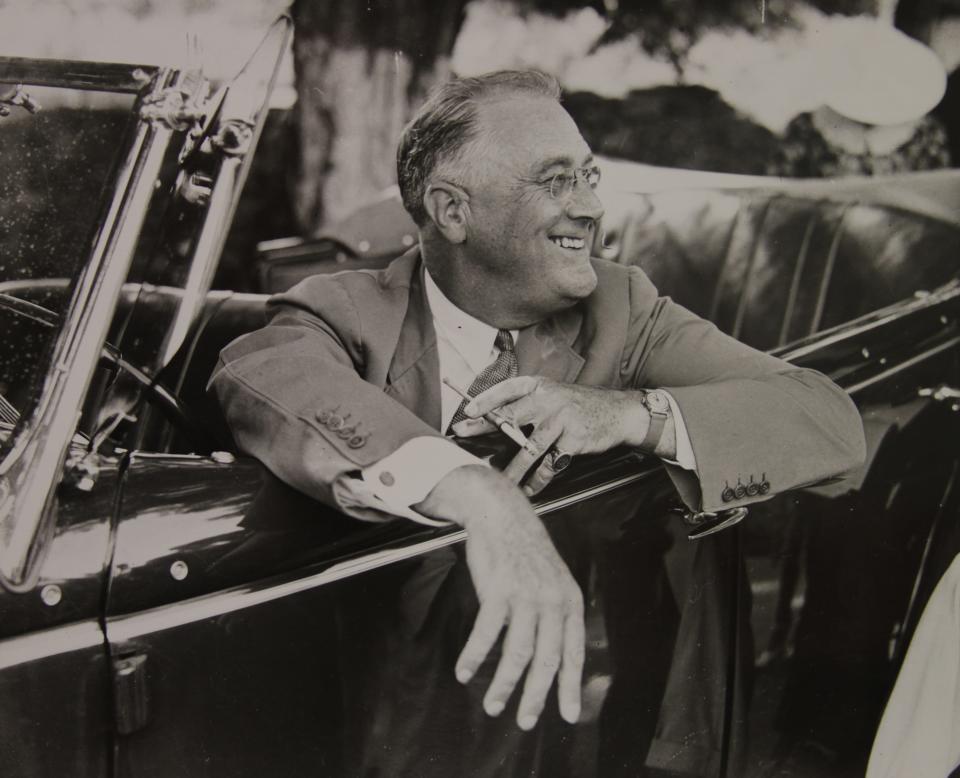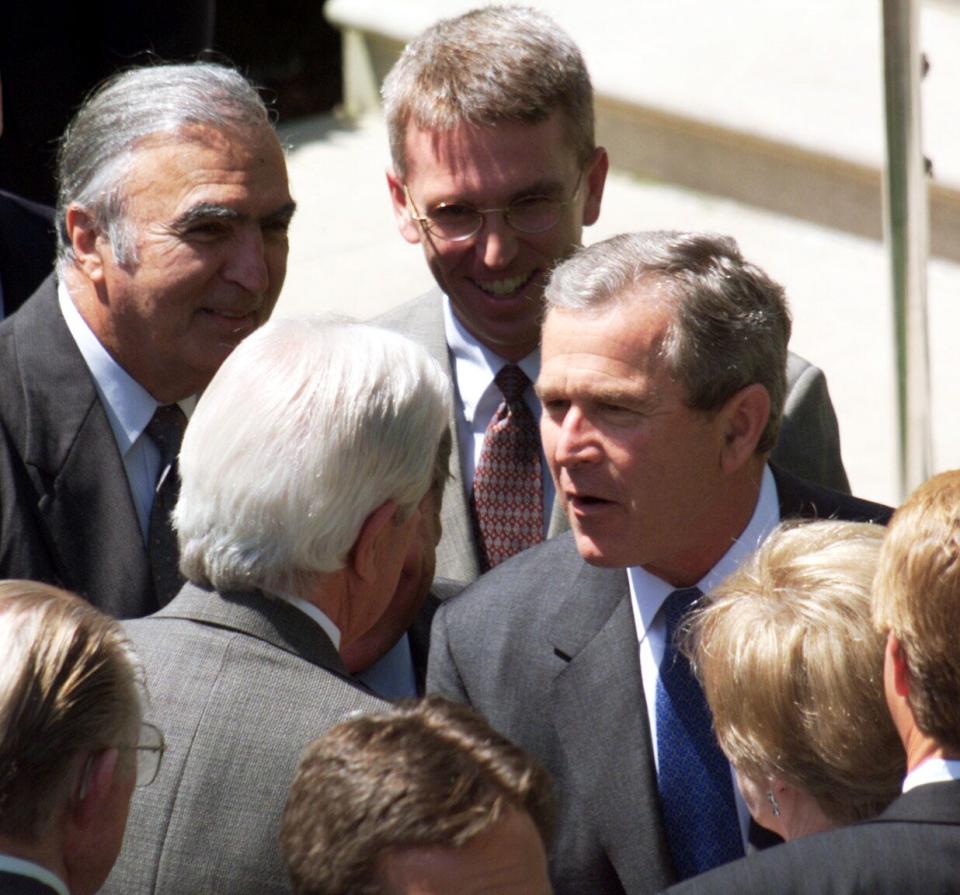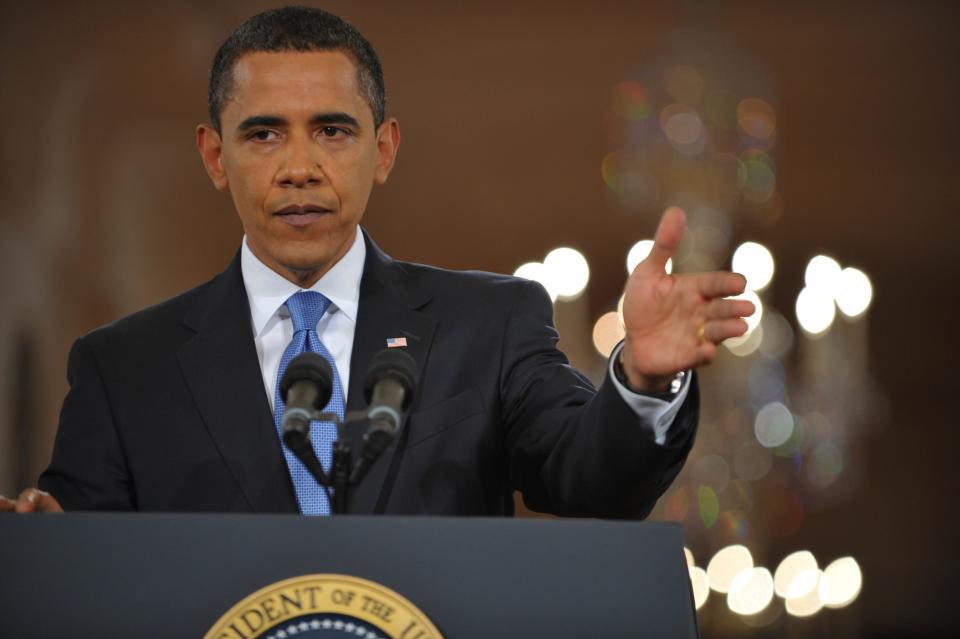Joe Biden's first 100 days ends this week. Why does the presidential milestone matter?
WASHINGTON — President Joe Biden will cross the 100-day mark of his presidency on Friday, an arbitrary date on the calendar, but a decades-old standard used to judge presidents.
The spotlight has been on the president’s first 100 days since he was sworn in and vowed to use that time to tackle the COVID-19 pandemic and reverse many policies of former President Donald Trump.
Biden set a slew of goals to achieve within his first months in office, and while there is nothing in U.S. law stipulating what he must get done in that time, historically, presidents, Congress and the media have looked at the first 100 days of an administration as a benchmark of progress, to set the tone of the administration’s priorities and to judge its success so far.
"Presidents feel compelled to stack up some points on the first 100-day scoreboard to show that they’re leaders of action, to set the agenda and what kind of leader they’re going to be," said Terri Bimes, associate teaching professor of political science at University of California–Berkeley.
Where does it come from?
Scholars trace the importance of the first 100 days back to the presidency of Franklin D. Roosevelt, whose swift action in the first months of his term to combat the Great Depression made his administration a standard by which presidents have since been held.
He passed 76 laws, according to FiveThirtyEight, rapidly pushed through legislation that gave the government the power to regulate the stock market, set the minimum wage and close American banks for a bank holiday. In a radio address after his first 100 days passed, Roosevelt used the phrase "first 100 days."
Since then, administrations, political commentators and the media have looked at the amount of legislation a president has passed, the effectiveness of actions taken and public perception and compared it to the standard set by Roosevelt.
Anthony Badger, a historian of American politics and presidencies, writes in his 2009 book "FDR: The First Hundred Days" that even if the measure is arbitrary, presidents have still felt the need to hold themselves to it.
"Presidents have been expected to follow FDR's lead," Badger said.

Biden's first 100 days
Biden's term began as the Senate was conducting its second impeachment trial of Trump after the Jan. 6 Capitol riots. Congress then spent weeks negotiating and passing Biden's COVID-19 stimulus bill, the $1.9 trillion American Rescue Plan. He also introduced his $2.25 trillion jobs and infrastructure proposal, which is expected to be brought up in Congress in the coming weeks.
The president signed a slew of executive actions right out of the gate, including reversals of some of Trump's hardline immigration policies and orders aimed at expanding resources to combat the pandemic. Biden's stated goal of administering 200 million COVID-19 vaccines in his first 100 days was met early, the administration said.

Still, Biden's administration faced early challenges with the situation at the southern border, where a surge in migrants, including unaccompanied minors, forced Biden to tell potential migrants not to come to the U.S. as the administration prepared its strategy.
Biden plans to travel to Georgia to mark his 100th day in office in the state that swung his way in the presidential election and elected two Democratic senators.
Why does it matter?
Apart from being a date by which to judge the president, research suggests a president's first 100 days are also heavy in legislative action and executive actions.
According to GovTrack, seven laws have been enacted in the current Congress, which is low compared to the number of laws passed in past presidencies. According to an analysis by FiveThirtyEight, Barack Obama signed 14 laws, George W. Bush signed seven and Bill Clinton signed 22 in their first 100 days. That compares to 76 for Roosevelt and 53 for Harry Truman.
Bimes' research with Casey Dominguez and Dan Grushkevich shows that Biden has signed more reversals of a previous administration's actions in the first 100 days than any president in history, she said. He has also signed the largest number of executive actions, which don't require passage through Congress, but are tenuous because they can be withdrawn by a future president.

Trump also boasted about signing the most executive orders in his first 100 days, Bimes noted.
"You get the sense that they’re trying to outdo one another," she said.
A study by professor Casey Dominguez, political science and international relations professor at the University of San Diego, found that presidents are more successful at passing legislation through Congress within their first 100 days in office compared to other times in their administrations, particularly if they are functioning in a politically divided government.
But research by John Frendreis, Raymond Tatalovich and Jon Schaffhas of Loyola University Chicago has shown that legislative pushes have been less fruitful in modern administrations than they were in Roosevelt's time. The authors attribute the discrepancy to changes in how a modern Congress works, including a longer process to push through legislation.
Bimes looks at a combination of laws passed, Cabinet confirmations, executive orders, reversals and other factors to determine what a president has accomplished in the first 100 days.

Biden can't be expected to achieve the same amount of legislative success as Roosevelt, Bimes said, given the narrowly divided Congress he faces.
"It's an arbitrary measure, yes," Bimes said, but "there’s so much media fanfare around the first 100 days and presidents feel compelled to rack up the points."
This article originally appeared on USA TODAY: Joe Biden's first 100 days: Why should we care about the milestone?